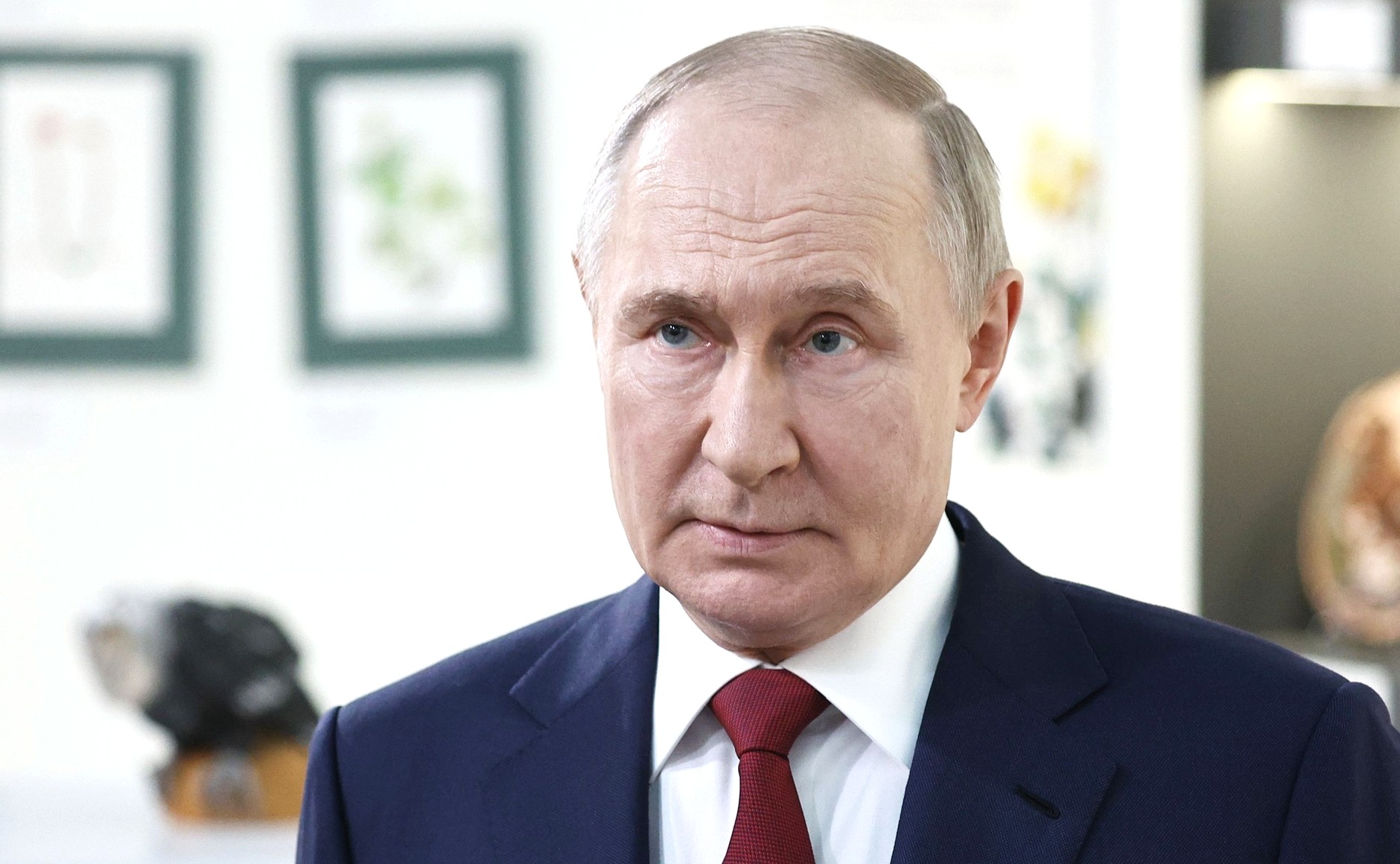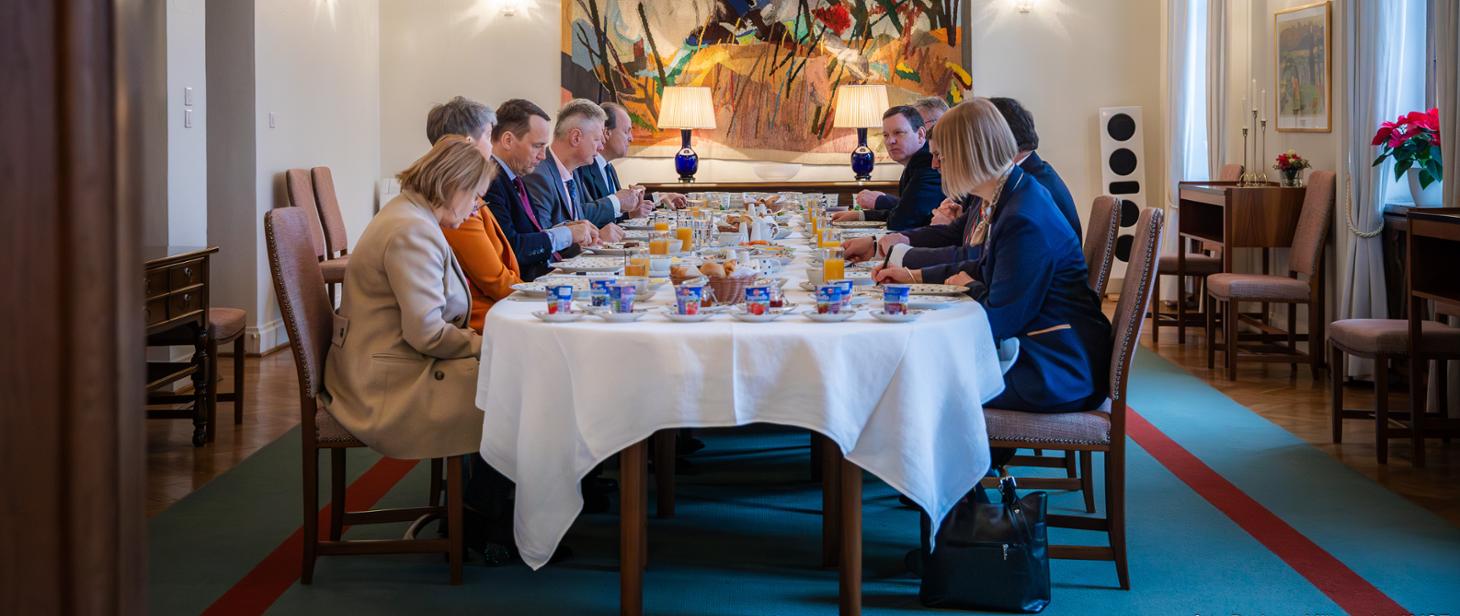
Putin Tries to Dodge Pressure For Ceasefire, But is Stuck in Tight Corner
Putin Tries to Dodge Pressure For Ceasefire, But is Stuck in Tight Corner
Executive Summary:
- Talks in Istanbul between Russia and Ukraine on May 16 occurred under low expectations, resulting in high diplomatic posturing despite the discussions resulting in minimal progress
- Western leaders have pushed for a ceasefire, prompting renewed engagement from Russian President Vladimir Putin, who is trying to exploit Western divisions while resisting substantive compromise in peace discussions.
- Putin is clinging to war ambitions and illusionary strength despite Russia’s economic strain and diminishing leverage. He rejects realistic peace plans, leaving him unprepared for future high-stakes negotiations.
The direct talks between Russia and Ukraine in Istanbul on Friday, May 16, took place in an odd atmosphere of low expectations and high excitement. The talks predictably yielded little, while possibly altering the complex political maneuvering around Russia’s deadlocked war against Ukraine quite significantly. Russian President Vladimir Putin sought to present these talks simultaneously as a new initiative and as a continuation of the negotiations in spring 2022, which were broken at the stage of provisional drafts (see EDM, March 17, 22, 2022). The Russian delegation included the same third-level officials led by Putin’s aide, Vladimir Medinsky, but a new mandate was issued after a meeting in the Kremlin late evening on May 14 of all top officials and even the commanders of military groupings in the theater of war (President of Russia, May 14; Rossiiskaya gazeta, May 15). Neither the old format nor the new content has delivered the desired result, primarily because the war has evolved far from the failed blitzkrieg aimed at capturing Kyiv, while Putin’s ambition for subjugating Ukraine persists.
The strong message from four European leaders on May 9 prompted Putin to press the proposition for the meeting. French President Emmanuel Macron, German Chancellor Friedrich Merz, Polish Prime Minister Donald Tusk, and U.K. Prime Minister Keir Starmer traveled together to Kyiv on May 9, the same day the Victory Day parade rolled over Red Square in Moscow (Novaya gazeta Europe; see EDM, May 12). The key point of that message was the demand for a month-long ceasefire, which was coordinated with U.S. President Donald Trump’s sustained effort for making a “peace deal” for ending the senseless and tragic war (Re: Russia, May 13). The Kremlin rejected the attempt to compel Russia to compromise but, departing from the usual pattern of intransigence, indicated readiness to think about “nuances” of the possible armistice (RBC, May 10). The threat of new sanctions was perhaps not that grave in Putin’s assessment, but the reconstituted unity of the West appeared to be a problem that demanded a precise hit at the well-known differences in interests (Izvestiya, May 15).
The initiative for an urgent round of bilateral talks appeared to deliver exactly that as Trump instantly expressed support for it and even hinted at the possibility of participating in the meeting (Nezavisimaya gazeta, May 13). Ukrainian President Volodymyr Zelenskyy sought to regain the initiative by challenging Putin to a face-to-face meeting and travelling to Ankara, where he held lengthy talks with Turkish President Recep Tayyip Erdoğan (RIA Novosti, May 15). Türkiye was eager to play the role of a bona fide mediator, providing the historic Dolmabahce palace as the venue with Turkish Foreign Minister Hakan Fidan present at the proceedings (TASS, May 16). Commentators in Moscow have, therefore, not only Medinsky’s word on a “satisfactory” meeting, but also independent confirmation of a constructive discussion, which appeared when the Russian side presented the demand for complete control over four Ukrainian regions as a precondition for a ceasefire (Kommersant, May 16).
The deadlock was predictable as the Russian side had no authority to make a step from Putin’s tall demands and only tried to gain more time by agreeing on another meeting where detailed mutual conditions for a ceasefire could be compared (Carnegie Politika, May 16). Zelenskyy aimed to outflank this entrenched position by a sequence of diplomatic moves, so his negotiators had a “productive” meeting with U.S. Secretary of State Marco Rubio and U.S. Special Envoy to Ukraine and Russia Keith Kellogg (Currenttime.tv, May 16). Zelenskyy went from Ankara to Tirana, Albania, for a summit of the European Political Community to boost support for new sanctions punishing Russian stubbornness (Rossiiskaya gazeta, May 16). Key European leaders are keen to increase pressure on Moscow, which pins its hopes on Trump’s current assertion that nothing could be achieved without his meeting with Putin (The Insider, May 16; RBC, May 17). Putin may have high expectations for such a meeting, but his de facto rejection of the detailed plan prepared by U.S. Special Envoy to the Middle East Steven Witkoff, who was granted four long conversations with the Russian leader, does not help with preparing the ground for the phone conversation with Trump scheduled for Monday (Vedomosti, May 10).
Putin has maintained a cavalier attitude toward the threat of new sanctions, but the undeniable slowdown in the Russian economy may tilt toward recession even if the new restrictions are not as harsh as Trump promised on several occasions (see Strategic Snapshot, May 8; The Moscow Times, May 16). The trade with the People’s Republic of China (PRC) is declining, despite the big promises made during PRC President Xi Jinping’s recent visit to Moscow, and the shortage of workers is affecting even the privileged enterprises of the military-industrial complex (Vedomosti, April 15; The Insider, May 13). The sustained decline of oil prices not only deforms the Russian state budget but also makes it easier for the Europeans to take measures against the “shadow fleet” of tankers (see EDM, February 27; BFM.ru, May 16). Russian media is making a big deal of the recent incident in the Gulf of Finland, where the Estonian Navy attempted to inspect one such uncooperative tanker sailing toward the Primorsk oil terminal (Izvestiya, May 17). Russian “patriotic” pundits are boasting about the actions of a Russian Su-35 fighter, which allegedly scared away the Estonian patrol boats, and that one submarine, a couple of frigates, and a dozen of corvettes that constitute the combat order of the Baltic Fleet could not possibly organize effective convoys for the dubiously registered tankers (TopWar.ru, May 15).
Putin wants to believe that his war of attrition is winnable and that victory is merely months, not years, away as the Ukrainian will to fight is depleted and the unity of the Western coalition is eroding. His generals are eager to present every “liberated” Ukrainian village as a step to victory, while camouflaging Russia’s casualties and ignoring the sky-high costs of recruiting the reinforcements (see EDM, May 14). Similarly, his ministers keep reporting about the irreducible strength of the Russian economy and downplaying the indicators of a looming recession. This illusionary position of strength leaves Putin ill-prepared for the desired talks with Trump. The Kremlin could have aimed at a few more concessions in addition to those already harvested, but its wish list goes far beyond the boundaries of rational choice. A compromise peace deal would require Putin to transition from a war leader to a manager of a complex domestic crisis, and he is not prepared for such a downsizing.


